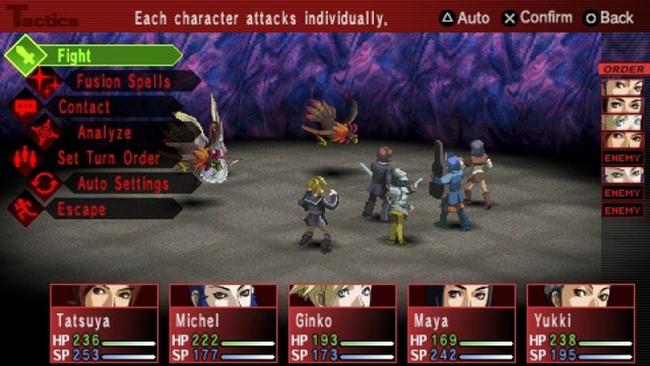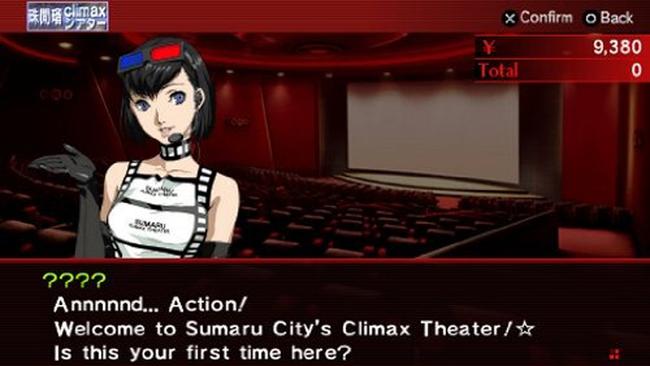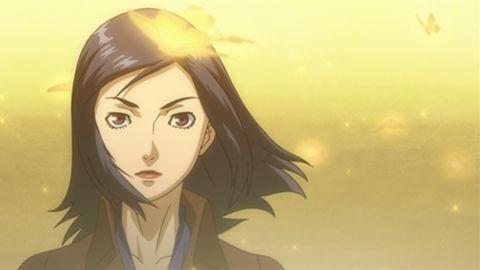
As the complete Persona 2 package turns 25, it's time for a remake
My first encounter with the Persona series was a stroke of pure luck. I discovered Revelations: Persona in a drug store bargain bin while shopping with my father in the late '90s. A tweenaged fan of Buffy the Vampire Slayer, I was sufficiently lured in by the weird art on the box and the promise of demon summoning. At this point in my life, I had never heard of Shin Megami Tensei. I struggled with the game mechanics and design when I sat down to play it, but something about it stuck with me. It was moody, messy as hell, and unlike anything else I’d ever played coming off the heels of Squaresoft’s Super Nintendo fare.
That serendipitous purchase (thanks, Dad!) led me down a rabbit hole of mythologies, high school drama, and Jungian psychology. I loved this odd little game that I never actually finished, as it was the start of my Atlus fandom. I was surprised nearly a decade later when Persona 3 came out for the PlayStation 2, but it left me wondering: how did I miss Persona 2? Turns out, I was in good company.
Now, on its 25th anniversary, it’s time to talk about the black sheep of the franchise. Not Persona with its grid-based oddities and awkward localization. Certainly not the poppy and confident Persona 3, which brought the series to new heights on a global scale, and doubly so for the stylish blitz of Persona 5. I’m talking about Shin Megami Tensei: Persona 2 - Innocent Sin and Persona 2: Eternal Punishment - a duology of games for the original PlayStation that are seemingly trapped in limbo.
Persona 2: Innocent Sin was first released for the original PlayStation in Japan in 1999, and for years it never saw an English release. Rather, Western players only got half the story when its sequel, Persona 2: Eternal Punishment, arrived stateside in just over 25 years ago, in June 2000. Imagine watching Back to the Future Part II or The Godfather Part II without ever seeing the first one. That's what we in the West were left to contend with. For English speakers, the full picture didn’t come into focus until the PSP remake of Innocent Sin hit in 2011, but then Eternal Punishment's PSP remake never left Japan.
Even today, getting the full Persona 2 experience in the West requires playing two differing versions, or an annoying dance of emulation, imports, and fan translations if you are looking for consistency in gameplay. Which is a shame, because this pair of games contains some of the boldest storytelling Atlus has ever attempted.

Innocent Sin tells the story of Tatsuya Suou and a group of high school students who discover that rumors are literally becoming reality. As bizarre events unfold across the city of Sumaru, the group confronts their traumas, demons (both literal and figurative), and a masked cult leader with an unsettling connection to their past. Like the first Persona, it features turn-based combat where you interact with monsters, with the ability to fuse and create new Personas. Back then, this simply looked like Satanic Pokémon. Now it's a staple.
Then Eternal Punishment flips the script. Set in a parallel timeline, it follows investigative journalist Maya Amano (a character from Innocent Sin) as she pieces together the mystery from another angle, eventually discerning the truth. I love that Eternal Punishment focuses on a core cast of adults, rather than high school students - something which you do hear a certain stripe of fan clamor for in their desires for Persona 6. People tend to forget that Atlus has actually already explored 'adult Persona' before.
Frankly, these games are heavy, dealing with themes of abuse, repressed memories, societal guilt, and what it means to truly grow up. These games explore rumors as a form of collective unconscious, where belief shapes reality - quite literally, as the spread of rumors could impact story events and gameplay. Everyone has something to say, something to lose, and something they’re hiding. It’s messy in the best way possible. Too often, though, these games are ignored for the likes of Persona 3, 4, and 5.
That’s not entirely surprising. Persona 2 lacks the character relationship mechanics and time management loops that define later entries. The combat system can feel tepid on both the PlayStation and PSP versions, and the dungeon design is unspectacular. But beneath the mechanics lies a rich intersecting narrative that no other Persona game has quite replicated, leaning more towards a psychological thriller. Where more recent Persona games have received extensive spinoffs and companion content, Persona 2 deserves better treatment.

With Persona 3 Reload reintroducing modern fans to the roots of the modern iteration of the franchise, and Persona 4 Revival newly announced, the time has never been better to remake Persona 2. Not a simple port or upscaled re-release, but a full reimagining in the style of Reload and Revival. Same characters, same story, but rebuilt with today’s tech capabilities and design sensibilities.
Give Sumaru City the atmospheric polish it deserves. While we’re at it, let’s smooth out the user interface, modernize the encounter system, and add voice acting to really sell those devastating character moments. But please, no need to jazzify the soundtrack to retrofit it with the sound design first popularized in Persona 3, and I don’t believe there is a compelling argument as to why Social Links would need to be shoehorned in, either. This game is different - and that's okay. They are vital stepping stones to what Persona is today.
There’s a generation of fans who came in with Persona 5 and have no idea what they’re missing. If Atlus is serious about celebrating the legacy of this series, then Persona 2 needs to be a part of the conversation. It’s not enough to keep throwing Joker into crossovers while Tatsuya and Maya fade into further obscurity. I’m not asking for a Persona 2 dancing or fighting game, but just for this duology to finally escape from the shadows of bifurcated worldwide releases on two separate consoles.

Remaking Persona 2 is not just about nostalgia. Hell, I’m willing to wager most of the people reading this have never played it. Rather, I like to think of it as preserving a pivotal moment in the series' history. These games unflinchingly tackled mature themes about trauma, identity, and the shadow side of society long before that became trendy. They set the stage for everything that came after.
So, Atlus, if you’re listening, it’s time. Give us a remake. Let new players experience the haunting mysteries of Sumaru City. Let long-time fans revisit the duology with fresh eyes. And maybe, just maybe, let the rumors begin again.